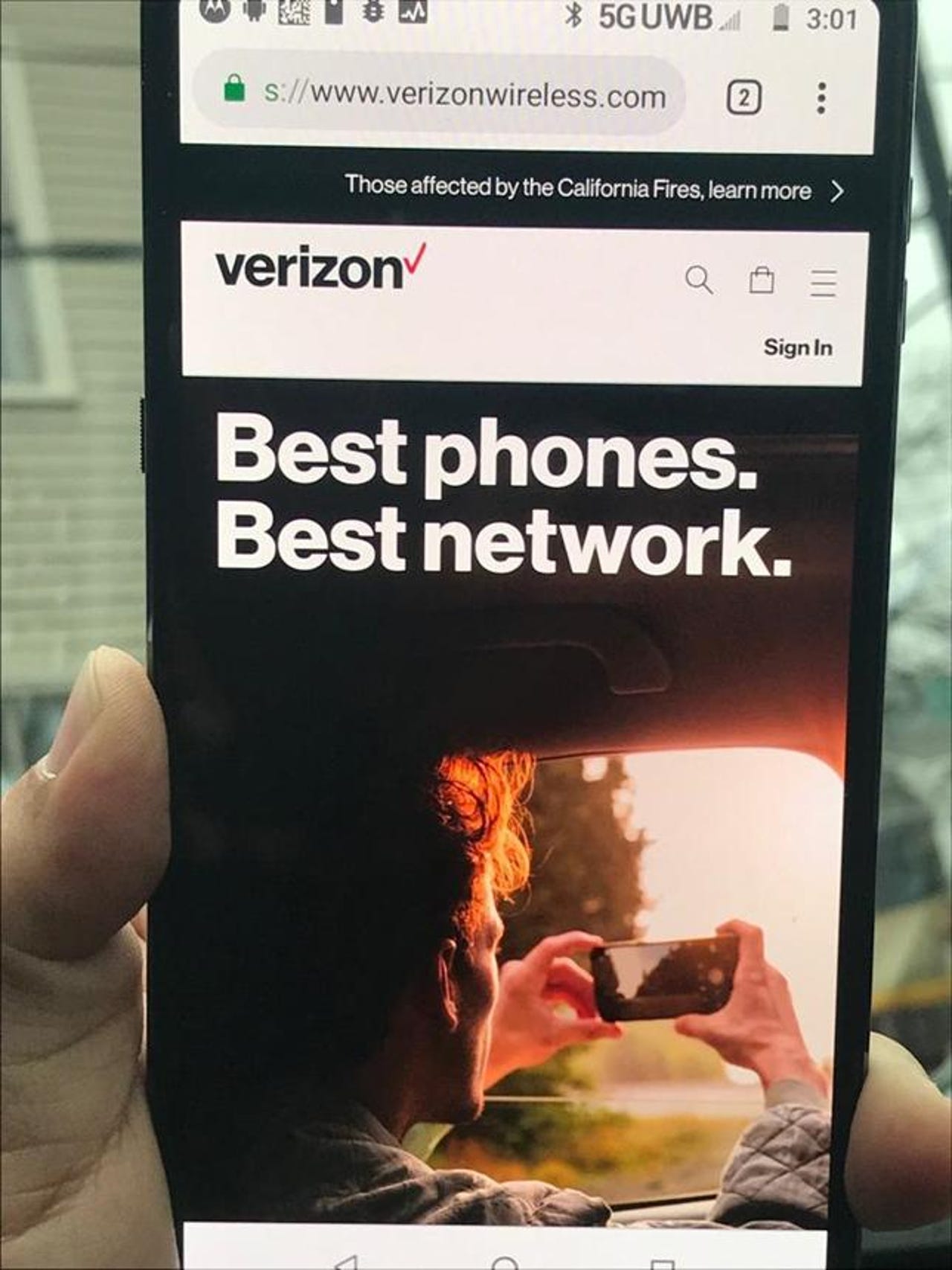Verizon connects smartphone to 5G network


Verizon has announced successfully connecting a smartphone to its 5G network in partnership with Samsung, Qualcomm, and Motorola, with the companies completing a video call and browsing the internet using the 5G link.
The trial, which took place in Providence, Rhode Island, used a Motorola Moto Z3 with a 5G moto mod -- which Verizon called "the world's first 5G-upgradeable smartphone" -- as well as Verizon's 28GHz millimetre-wave (mmWave) spectrum, Samsung's 5G New Radio (NR) solutions, a Qualcomm Snapdragon X50 5G modem, and Qualcomm's QTM052 mmWave antenna modules.
"This successful test, using an actual smartphone, widens our lead [on 5G]," Verizon VP of Technology Development and Planning Bill Stone said.
"We will be the first to offer a 5G-upgradeable smartphone on our network in 2019."
Read more: MWCA: Verizon 5G Home coming to more cities
Verizon in September revealed that it would be launching 5G Home in October across parts of Sacramento, Los Angeles, Houston, and Indianapolis, and later in many more cities, chief network engineering officer and head of wireless networks Nicki Palmer told ZDNet.
Speaking with ZDNet during Mobile World Congress Americas (MWCA) in Los Angeles in September, Palmer added that a 5G mobile service would "follow quickly".
"We said we'd be first and we were first," she said, adding that Verizon's millimetre-wave (mmWave) spectrum holdings in the 28GHz and 39GHz bands means its network "can deliver the real promise of 5G".
"We've got a lot of spectrum in a lot of places."
Verizon in October then announced that the fifth US city to receive its 5G network will be Panama City, Florida, as the carrier aims to "stabilize and strengthen" its wireless network across the hurricane-impacted Panhandle and throughout the Bay and Gulf counties.
"As the community rebuilds, Verizon will be ... committing $25 million to build the most technologically advanced wireless network in the area. We will include 5G technology as part of that infrastructure," Verizon technology leader Kyle Malady said last month.
Verizon in October reported third-quarter earnings of $1.19 a share and $1.22 a share on a non-GAAP basis with revenue of $32.6 billion, up 2.8 percent from a year ago.
Wireless revenue was $23 billion, up 6.5 percent from a year ago.
"We started doing [5G] installs earlier this month," Verizon CFO Matt Ellis said.
"We've seen performance as we've expected since we started doing those installs. The technology works, our customers are getting the experience they expected, and we are getting a lot of good learning which will benefit us next year when we roll out the product to that much larger audience.
"5G Home will become more significant as we expand coverage and we get on the global standards equipment in 2019. And I would expect that that would start to have an impact on consolidated revenues as we get into 2020 and beyond."
The 5G Home service provides typical network speeds of 300Mbps and peak speeds of 1Gbps, with no data cap and no annual contract required, making it a viable option over cable.
Verizon 5G Home also comes with free installation and set-up of all Wi-Fi devices; a free router and router software upgrades during 2019; first access to 5G mobile devices as they become available; and a "dedicated 5G expert" to support the service.
Verizon last week then announced that it will be reorganising into three business units focused on 5G customer experiences across consumer, business, and Verizon Media Group/Oath.
The restructure will become effective on January 1, with Verizon CEO Hans Vestberg saying it will "optimize the growth opportunities in the 5G era".
Related Coverage
- Verizon reorganizes into 3 groups to leverage 5G
- Verizon opens four 5G Labs, makes 5G call
- Verizon Q3 solid as 5G ramps, but Oath is becoming a drag
- Verizon to launch 5G in Florida
- True 5G standard to be set in December 2019: Samsung
- Mobile device security: A guide for business leaders
- Intel announces 5G modem for 2019
- Democrats to examine why Trump wanted to block AT&T-Time Warner merger: Report
- A peek behind AT&T's 5G debut and $700 million spent in Kentucky (TechRepublic)
- Overcoming challenges to install 5G on Governors Island in NYC (TechRepublic)
- Why Apple's 5G, Intel-powered 2020 iPhone would be huge for professionals (TechRepublic)
- EE: 5G is coming to these 16 cities